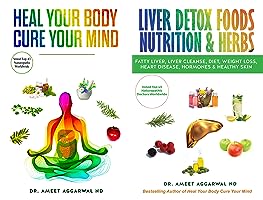Holistic Approaches to Home Health, Gut Cleansing, and Short-Term Disability for Mental Health

In our fast-paced world, the importance of holistic well-being cannot be overstated. Home health, gut health, and mental health are interconnected aspects that significantly impact our overall quality of life. While the idea of home health often focuses on physical cleanliness, it goes beyond that to include mental and emotional well-being. Similarly, gut health plays a vital role in our overall wellness, influencing everything from digestion to mood. Sometimes, our mental health might require extra care, leading to the need for short-term disability. This article explores these topics, offering insights into maintaining a healthy home environment, nurturing gut health, and accessing short-term disability for mental health when necessary.
Understanding Home Health
Home health is a multidimensional concept that encompasses both the physical and emotional aspects of one’s living environment. It involves creating a space that promotes well-being, relaxation, and positivity. A clean and organized living space can have a profound impact on mental health, reducing stress and increasing overall happiness.
Tips for Maintaining Home Health:
- Declutter: A clutter-free environment can help clear your mind. Regularly assess your belongings and let go of things you no longer need. A minimalist approach can create a sense of spaciousness and tranquility.
- Regular Cleaning: Cleanliness is not just about aesthetics; it’s about creating a healthy atmosphere. Regular cleaning reduces allergens, dust, and pathogens that can impact physical health and trigger allergies or respiratory issues.
- Natural Light and Ventilation: Ensure that your home is well-lit and properly ventilated. Natural light has been linked to improved mood and increased productivity. Fresh air circulation is essential for maintaining indoor air quality.
- Plants and Greenery: Incorporating indoor plants can improve air quality and add a touch of nature to your home. Being around greenery has been associated with reduced stress and enhanced well-being.
- Personal Space: Designate areas in your home for relaxation, hobbies, and personal time. Having a dedicated space for activities you enjoy can contribute to your mental health.
The Role of Gut Health in Overall Wellness
Gut health refers to the balance of microorganisms that reside in your digestive system. This microbiome has a profound impact on various aspects of health, including digestion, immune function, and even mental well-being. An unhealthy gut can lead to digestive issues, inflammation, and even affect your mood.
Ways to Support Gut Health:
- Dietary Fiber: Consume a diet rich in fiber from whole grains, fruits, vegetables, and legumes. Fiber feeds the beneficial bacteria in your gut, promoting their growth and diversity.
- Probiotics: Incorporate probiotic-rich foods like yogurt, kefir, sauerkraut, and kimchi into your diet. Probiotics introduce beneficial bacteria to your gut, improving its microbial balance.
- Prebiotics: Prebiotics are non-digestible fibers that serve as food for the beneficial bacteria in your gut. Foods like garlic, onions, leeks, and asparagus are excellent sources of prebiotics.
- Hydration: Drinking an adequate amount of water supports digestion and helps maintain a healthy gut lining.
- Limit Sugar and Processed Foods: High sugar and processed foods can negatively impact gut health by promoting the growth of harmful bacteria.
Navigating Short-Term Disability for Mental Health
Despite the growing awareness around mental health, there are times when our emotional well-being requires focused attention, leading to the consideration of short-term disability. Short-term disability allows individuals to take time off work to recover without facing financial hardship.
Steps to Obtain Short-Term Disability for Mental Health:
- Medical Evaluation: Consult a mental health professional, such as a psychiatrist or therapist. A proper diagnosis and treatment plan are crucial for applying for short-term disability.
- Documentation: Obtain medical documentation that outlines your condition, its severity, and the recommended treatment, including any necessary time off work.
- Employer Notification: Notify your employer about your intention to take short-term disability. Understand your company’s policies regarding leave and disability benefits.
- Submit Application: Follow your employer’s or insurance provider’s procedures for applying for short-term disability. Include all required documentation, such as medical records and treatment plans.
- Review Process: The application will be reviewed by your employer’s HR department or insurance provider. Be prepared for possible requests for additional information.
- Focus on Recovery: Use the approved time off to prioritize your mental health. Engage in therapy, self-care, and activities that promote relaxation and healing.
Conclusion
Home health, gut health, and mental health are interconnected elements that contribute to our overall well-being. By maintaining a clean and organized living space, supporting our gut with proper nutrition, and seeking short-term disability when needed, we can better navigate life’s challenges and nurture our holistic wellness. Recognizing the significance of these factors and taking proactive steps can lead to a healthier, more balanced life.







